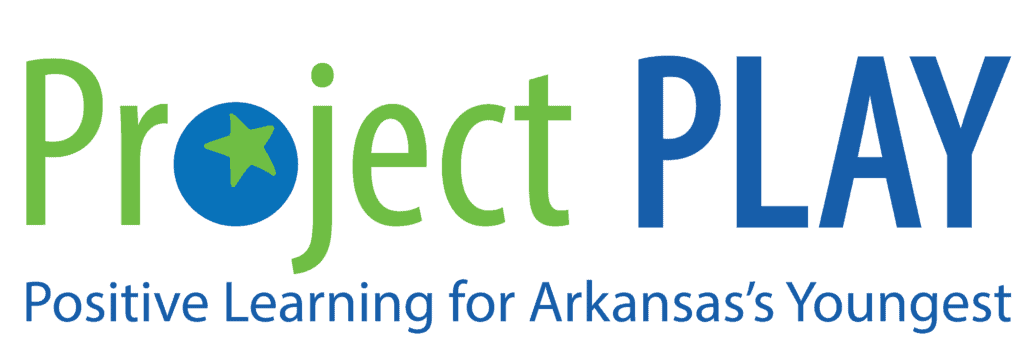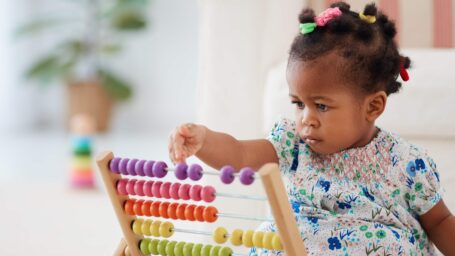Biting? Hitting? Excessive Crying?
We match early care and education providers with early childhood mental health consultants.

Supporting Better Outcomes
Suspension and expulsion, even at an early age, disrupt social-emotional growth. This leads to troubling behavior in young children that can snowball into poor school performance and adult incarceration. By intervening early, we can prevent future harm and support better outcomes. Project PLAY strives to:
- Increase the percentage of children in quality child care.
- Decrease switches in child care placement.
- Improve communication between all the grown-ups who share caregiving responsibilities for a child.
BehaviorHelp Partners
BehaviorHelp is a statewide expulsion prevention support system for Arkansas early care and education. It coordinates three tiers of support to ECE professionals: phone support, on-site technical assistance, and Infant and Early Childhood Mental Health Consultation (ECMHC). Project PLAY is a Tier 3 ECMHC support. We employ highly trained individuals with appropriate certifications in early childhood mental health.
Connect to BehaviorHelpThree Types of Consultation

Classroom
We work with teachers to improve the care offered to all children by helping identify attitudes, beliefs, practices, and classroom conditions that support positive behaviors.

Child-Specific
When a specific child’s behavior concerns parents or teachers, a consultant helps them understand, assess, and address the child’s needs by developing an individualized plan.

Program-Level
Directors and other program leaders are supported by PLAY consultants to make changes in their child care practices and policies that will benefit all children and adults.
Child Care
A teacher’s job is tough!
Project PLAY consultants help teachers with developmentally appropriate practices to deal with issues in early childhood classrooms, such as:
● Teacher Stress
● Challenging Child Behaviors
● Friendship Skills
● Building Self-Control
● Communication with Parents
● Classroom Schedules & Transitions
Foster Care
Science tells us children have better outcomes when they attend high quality child care. This is especially true of vulnerable children, like those in child protective services. Healthy growth and development in early childhood is dependent on nurturing relationships with stable adults. We educate early childhood educators, case workers, foster parents, courts, and CASA volunteers on the importance high quality, stable child care.
Research and Resources

Research & Results
Project PLAY is continuously evaluated. Review the evidence base for positive outcomes.
Go to Research & Reports
Resources
The Project PLAY team has curated resources that may be helpful to you and the families you work with.
Go to ResourcesReach Out
Project PLAY
University of Arkansas for Medical Sciences
Department of Family & Preventive Medicine
Research & Evaluation Division (RED)
521 Jack Stephens Drive, Slot 530
Little Rock, AR 72205
Phone: 501-526-4239
Fax: 501-686-8421
Email: projectPLAY@uams.edu
